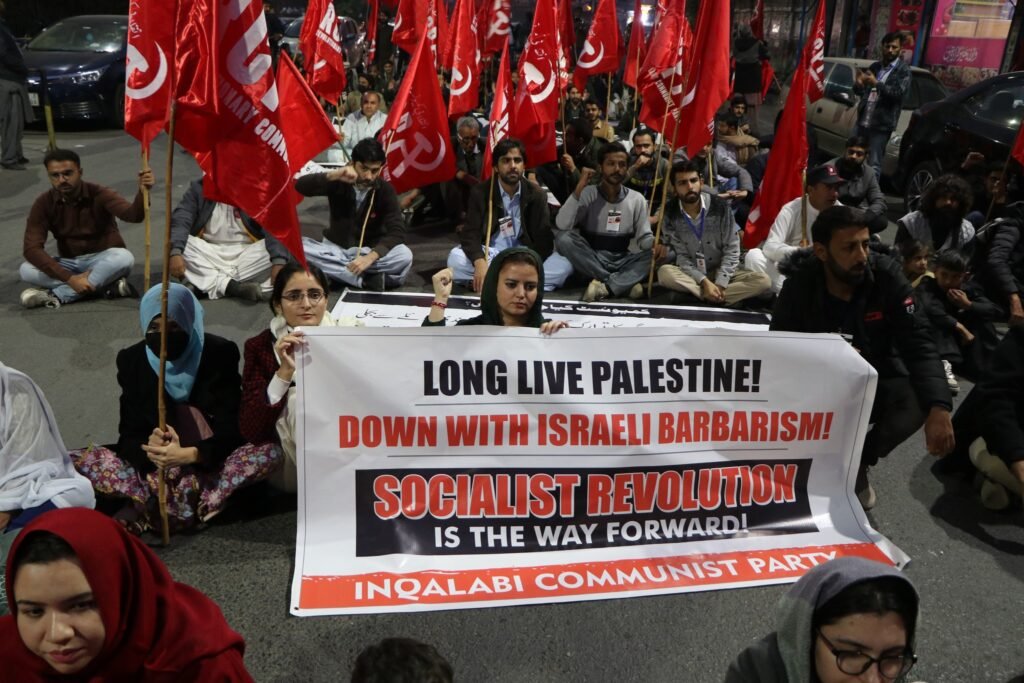The founding of the Revolutionary Communist Party (RCP) marks a decisive step in the fight against the oppressive regime in Pakistan and the imperialist exploitation it sustains. Emerging as a beacon of hope for the working masses, the party has vowed to dismantle the obstacles that perpetuate systemic injustice and lead the charge toward a revolutionary transformation.
The inaugural congress saw an extraordinary gathering of 322 comrades from across Pakistan, representing every region from Gwadar to Gilgit and Quetta to Rawalpindi. Delegates came from cities such as Karachi, Lahore, Peshawar, Faisalabad, and beyond, illustrating the party’s reach and determination to mobilize on a national scale. The congress was enriched by the presence of international delegates, including comrades from Italy, the United States, Sri Lanka, Canada, and Britain, underscoring the global solidarity of the communist movement.
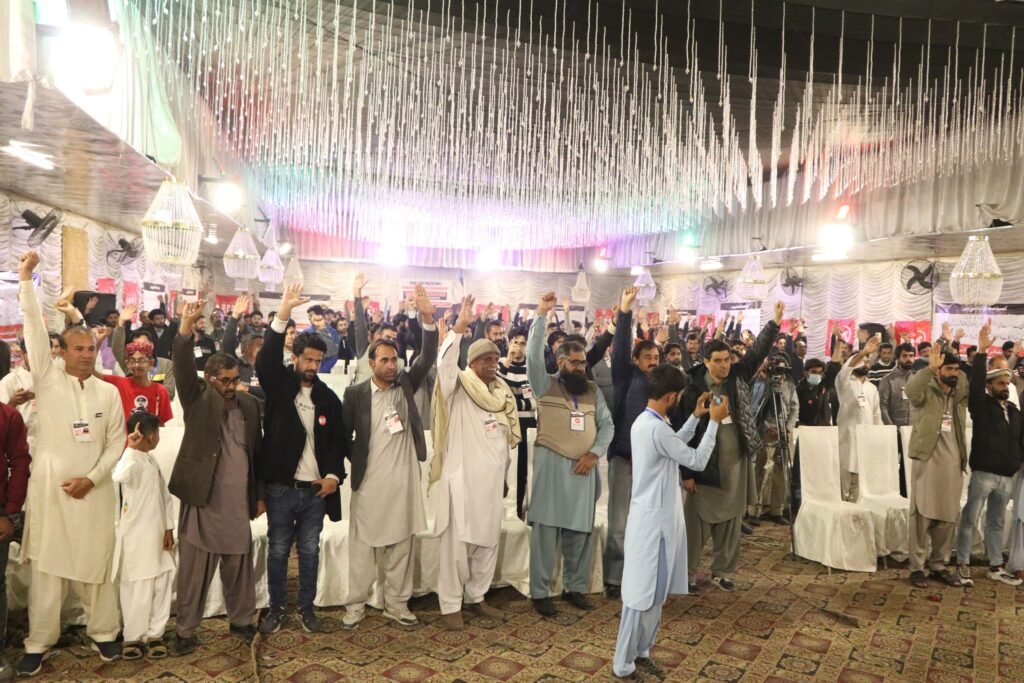
A Region Poised for Revolution
The political and social conditions in Pakistan reflect a brewing storm of dissent. Across the subcontinent, movements in Sri Lanka, Bangladesh, and India have ignited a regional wave of resistance, signaling that the time for revolutionary action is ripe. In Pakistan-administered Kashmir, a mass movement against a repressive law has galvanized tens of thousands, forcing the government to withdraw the legislation and concede to additional demands. Delegates from Kashmir shared updates, sparking celebrations and reaffirming the collective resolve of the congress.
Challenges and Triumphs
Despite logistical difficulties arising from years of neglect and austerity, the commitment of the delegates was unwavering. Comrades endured grueling travel conditions, some taking over 20 hours by train, to participate in this historic event. The congress itself was a logistical triumph, held in Lahore’s railway hall and marked by exceptional organization and hospitality.
The launch of the Urdu translation of Trotsky’s The Permanent Revolution and Results and Prospects was a historic moment, providing crucial theoretical tools for the Urdu-speaking masses. Additionally, the unveiling of the party’s anthem—a collaborative effort by RCP members—added a cultural milestone to the proceedings, reflecting the vibrant revolutionary spirit of the congress.
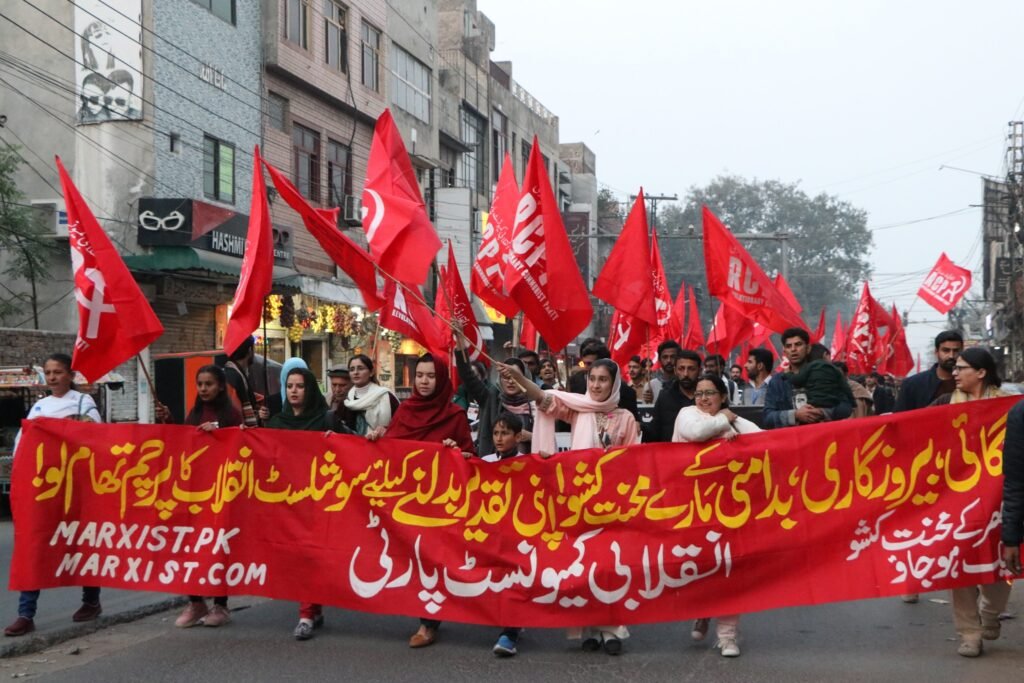
Global and Local Perspectives
Comrade Rob Sewell of the International Secretariat opened the discussions with an analysis of global perspectives, outlining the systemic crises of capitalism. Interventions from international comrades highlighted the interconnected nature of struggles worldwide, drawing parallels between Pakistan’s challenges and global patterns of economic and political instability.
Paras Jan from Karachi introduced the session on Pakistan’s perspectives, delivering an impassioned critique of the ruling bourgeoisie’s inability to address the country’s crises. He emphasized the need for a revolutionary party that truly represents the working class, in contrast to the exploitative policies of all existing political entities. The discussion connected the struggles in Kashmir to the broader crisis of capitalism in Pakistan, framing the RCP as the vanguard force capable of leading the masses toward liberation.
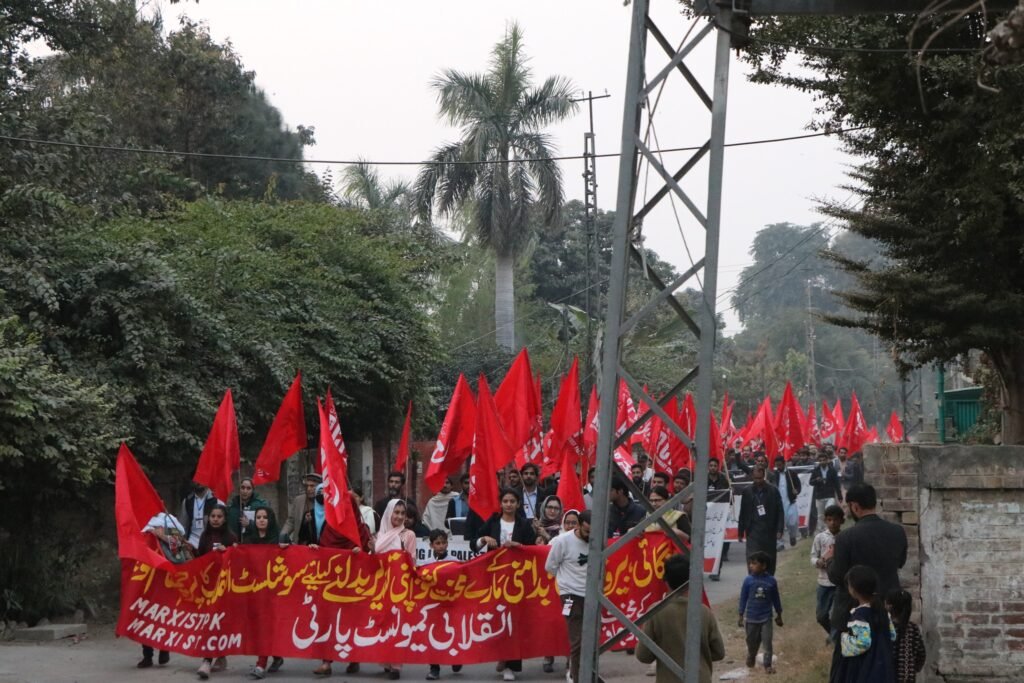
Strategic Foundations
A major focus of the congress was the manifesto of the party, introduced by Adam Pal. Rather than dwelling on procedural details, the manifesto discussion emphasized the revolutionary principles of Bolshevism and their application to Pakistan’s decaying socio-political landscape. Adam underscored the necessity of collective leadership, rejecting the cult of charismatic individuals, and highlighted the indispensable role of Marxist theory as the foundation of the RCP’s strategy.
The congress also featured commissions on the party’s newspaper, The Communist, and on campaigns aimed at expanding outreach, particularly among women. In a patriarchal society like Pakistan, the RCP recognizes the importance of challenging gender-based oppression and fostering the political empowerment of women within the revolutionary framework.
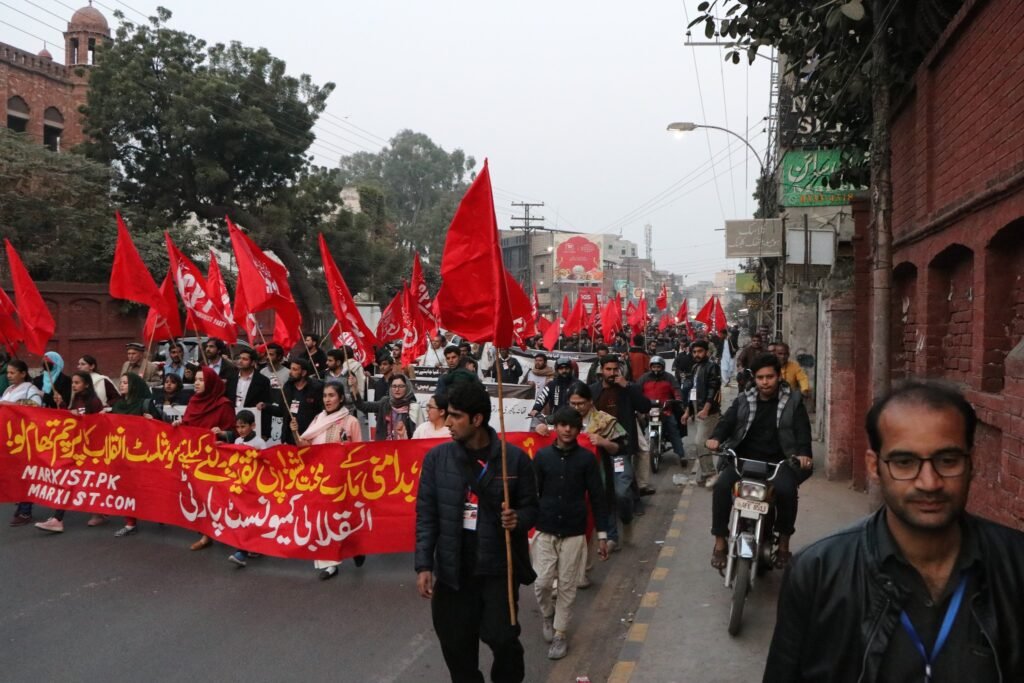
Cultural and Revolutionary Spirit
The congress celebrated revolutionary culture through poetry and music, featuring the works of iconic poets like Faiz Ahmed Faiz and Habib Jalib. Revolutionary ghazals and songs inspired enthusiastic responses from delegates, underscoring the party’s commitment to integrating cultural expression into the struggle for social transformation.
A Unified International Movement
The congress concluded with reports from international delegates on the growth of revolutionary movements in their respective countries. Comrades affirmed that the RCP’s membership in the Revolutionary Communist International (RCI) is a vital strength, enabling the exchange of theoretical insights and organizational strategies to advance the global struggle against capitalism.
Rob Sewell’s closing speech encapsulated the spirit of the congress, calling on comrades to return to their communities, organize the youth, and build the revolutionary party capable of toppling the capitalist system. The congress culminated with a rousing rendition of The Internationale and a rally at the Lahore Press Club, where comrades declared their revolutionary aspirations under the banners of “Bread, Clothing, and Shelter for All” and “Inquilab Zindabad!”
A Milestone in Revolutionary History
The founding of the RCP is not merely a political development but a historic turning point in Pakistan’s communist movement. Rooted in Marxist principles, driven by collective leadership, and armed with a bold vision, the RCP stands ready to channel the anger of the masses into a decisive revolutionary force. Long live the RCP, and long live the international struggle for socialism!
